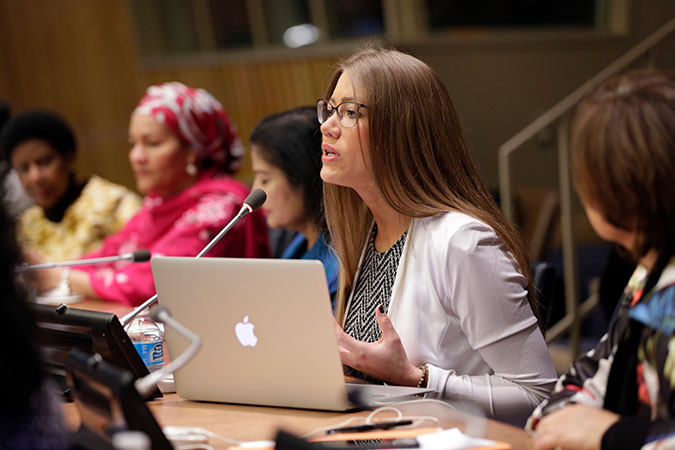From where I stand: “Technology sees skills before gender and disability”

Casar Jacobson. Photo: UN Women/Ryan Brown
When you lose your hearing slowly, you don’t know how much you’re using it until one day you wake up without it. I didn’t realize that I was missing 70 per cent of what was being said. It affected my education, my career and my relationships.
I was born hard of hearing and lost hearing in my right ear over a decade ago. Around five years back, I became completely deaf. I tried hearing aids, but they didn’t work so well. I taught myself to lip-read, but it’s not fool-proof. I remember once I was at a networking event and thought someone had asked me if I wanted a cappuccino. They came back with what looked like coca cola. I was confused and asked, “no cappuccino?” They said, ” I asked you if you wanted a captain and coke.” I’m not a drinker.
I have missed flights because I couldn’t hear the announcements at airports. It’s everyday things, big and small. People often tell me, “you don’t look deaf”.
Today, I call myself a “super connector”. I find individuals who are deaf and hard-of-hearing and connect them to other networks and resources and help them start their own business. Being a Youth Champion has broadened my reach to connect with other women with disabilities and with entrepreneurs. I think technology can be part of the solution for women with disabilities. It can truly empower us, if we can access it. Technology sees skills before gender or disability. I am currently working with partners on non-invasive technology to restore hearing.
My biggest dream is that the world sees us as persons with a different form of communication, a different language, not a disability, so that someone who is deaf or hard-of-hearing can grow up to pursue whatever [career] they want to.”
– Reposted from: http://www.unwomen.org/en/news/stories/2017/4/from-where-i-stand-casar-jacobson

CRISIS TEXT LINE: 741-741